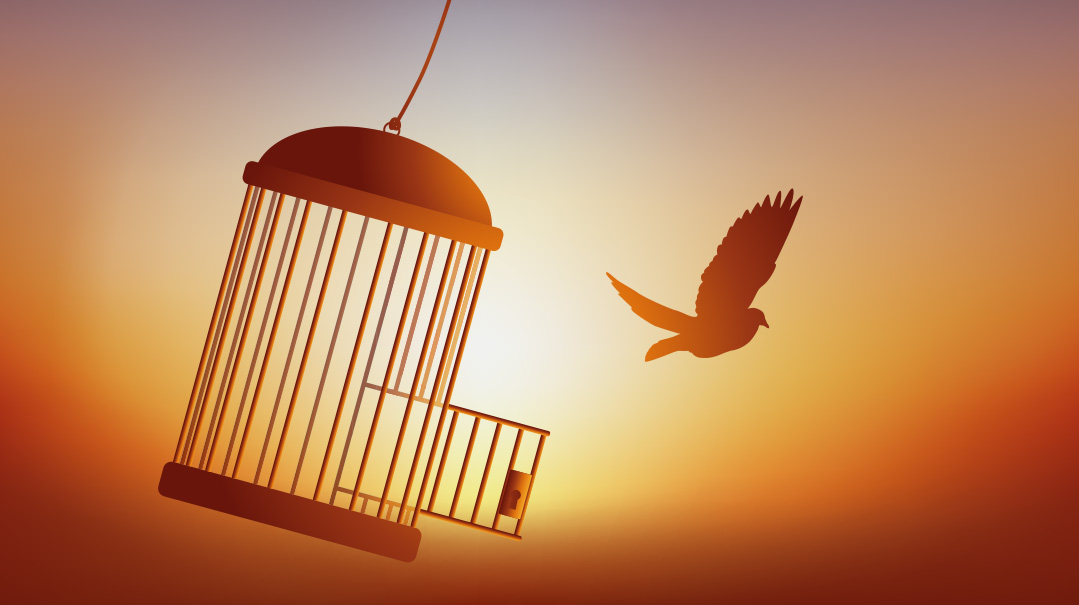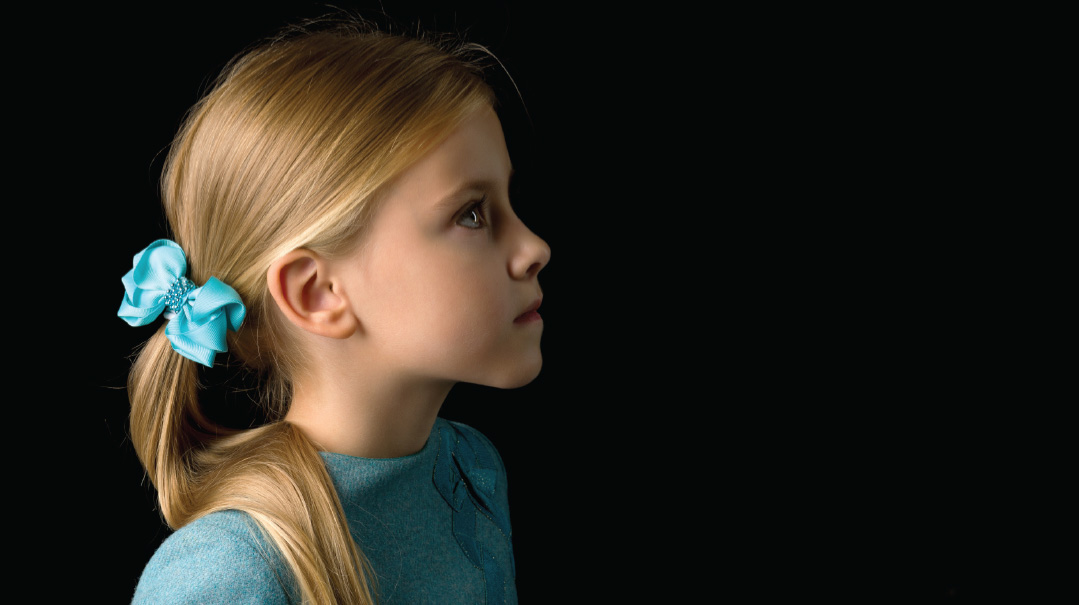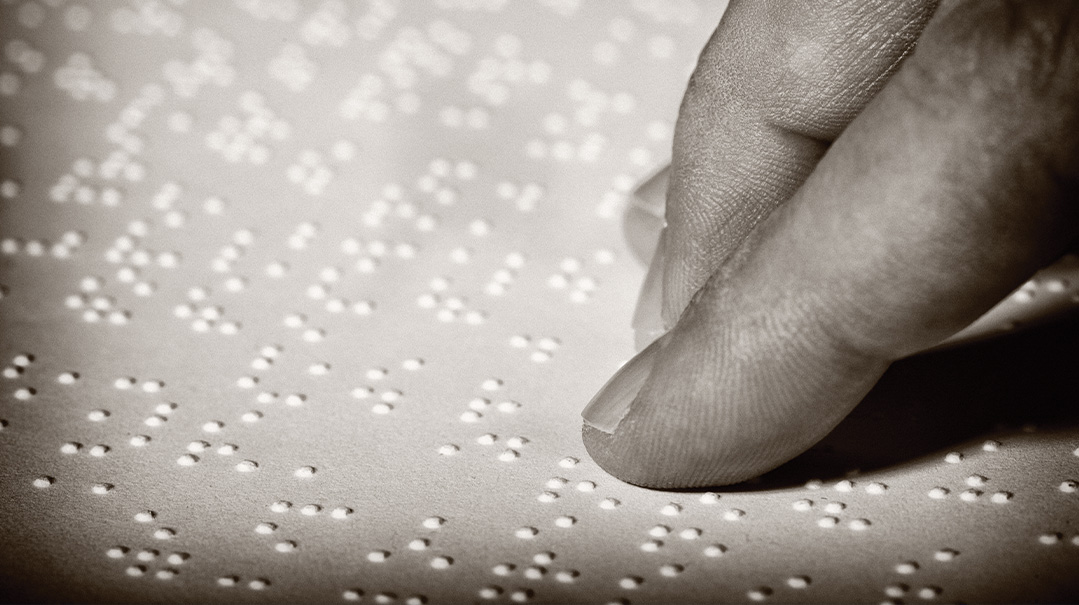Losing Game

I would find myself crying not for Kaila and her family, but for the simplicity of my own life before this all happened

T
hree years ago, I lost my best friend.
I mean, she’s still here, still living on Two Willow Lane, only one block away from me.
But she’s not there, not really. Not since her mother was nifteres when we were in eighth grade. I remember every detail of that day, where I was, what I was doing, where I was sitting.
Ma had just served meatballs and spaghetti for dinner, and Moishy was getting sauce everywhere, and I was not amused. I had just told him that he was a slob, and Ma had just told me not to call my brother a slob, and I had snapped at her, and she had snapped at me, and I was feeling that overwhelming sense of “Life is sooo unfair,” and then Kaila had called me. I hopped up to answer the phone, with Ma calling in the background that We eat as a family, and please tell whoever it is to call back.
“Miri? It’s Kaila. My mother was nifteres.”
That’s how she told me. In a voice so thin and high that it cracked on the last word.
I almost dropped the phone, but I managed not to. My hand was sweating, and I could hear myself breathing loudly.
“Omigosh,” I said. “Kaila. I’m… I’m so sorry. Baruch Dayan HaEmes.”
Then my mind froze and my mouth hung open, and I was breathing heavily until Ma gently pulled the phone away from me. She wrapped one arm around my shoulder, and spoke into the phone while holding me close.
And the rest of the day faded into a blur of tears and shock.
I was there for Kaila during shivah. I sat by her side while our class streamed in one by one, white-faced, some girls giggling nervously, some crying.
The teachers spoke to us in school, they spoke to us out of school. Kaila became a sort of celebrity, in a horrible, terrible way. It was like everything else about her — her amazing voice and crazy artistic abilities, her blonde hair and freckles — disappeared, leaving her as “the girl whose mother was nifteres.”
And I knew she was getting fed up. She would cry to me that not only is her family falling apart, but now her school life is making her miserable. And I wanted to help her, I really did, but I was just an eighth grader, young and inexperienced in the ways of the world. I tried my best, but I don’t think I accomplished much.
And late at night I would find myself crying not for Kaila and her family, but for the simplicity of my own life before this all happened.
Selfish, I know.
And things continued in that way. Eighth grade and elementary school were winding down, and Kaila was forever branded as different. Even the teachers couldn’t help themselves. They gave her extra privileges and jobs and the best parts in cantata and School Shabbos. No one even tried to offer any normalcy; we were all just tripping over ourselves to make sure she was happy.
And she wasn’t.
Graduation was incredible. And heartbreaking. It was the only time I saw Kaila cry since shivah. She stood on stage, in her crisp outfit and blow-dried hair, and the tears just rolled slowly down her face. I cried, too.
And afterward, at the graduation sleepover party, she told me. It was too hard for her. We were all making it too difficult. She wasn’t going to the local Bais Yaakov with the rest of us, like we had all planned since we were in kindergarten. Her aunts had switched her to an out-of-town Bais Yaakov.
I tried to convince her not to go. I begged and pleaded, all the while knowing it was too late, that it was too big, and that probably the best thing for her was to let her go.
And yet I couldn’t. I didn’t want to enter high school without her.
It wasn’t fair.
But school ended and summer began and Kaila was packing up. We shopped for shoes, backpacks, and hair accessories together, but the whole time I knew we weren’t going to be together, we wouldn’t be moving on to this next stage side by side, and so everything was different.
She moved to her aunt’s house two weeks before school began.
We tried to stay in touch, keeping each other up to date on school and tests and friends. But it was hard. High school was taxing, the long distance was difficult.
And so, I lost her.
Now, looking back, I wonder if I had been more mature, if we all had been, would she have stayed?
Being away from it all was so good for her. She flourished, made friends, won scholastic awards.
We got together at her last out-Shabbos and discussed seminaries. We’re applying to two of the same ones, so who knows? Maybe after all these years, we’ll go to school together again.
Maybe we’ll even be best friends again.
Who can say?
Hashem has a plan, that’s for sure.
And He keeps special guard over those without a parent.
(Originally featured in Teen Pages, Issue 971)
Oops! We could not locate your form.







